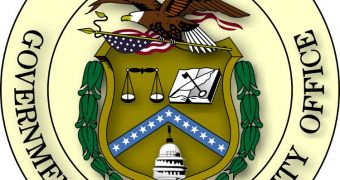According to a report released on October 11 by the US Government Accountability Office (GAO), it would appear that bilateral scientific exchanges between the United States and China are breaking laws in the United States, and should therefore be blocked.
This is the exact same point of view expressed by the US House Representative Frank Wolf (Republican, Virginia). The lawmaker suggested that NASA and the White House Office of Science and Technology Policy (OSTP) broke the provisions of the 2011 spending bill.
The document states that no funds given to the American space agency and the OSTP by the federal government can be spent to engage in exchanges of any kind with China. Officials from NASA visited several Chinese space facilities last year, and this is what caused the uproar.
Wolf is known as a staunch critic of China. For him, the issue of collaboration between the States and China is ideological, since he argues that the abuses the Beijing authority carries out on its own people are not democratic, and therefore should not be encouraged in any way.
The latest GAO report appears to agree with his point of view that the 2011 spending bill has been breached by the visit NASA officials carried out. The document became law in April, and a series of meetings between Chinese and American officials took place in Washington, DC, in May.
The talks, which also included OSTP Director John Holdren, were aimed at finding methods of easing scientific collaboration between the two countries. US President Barack Obama says that Congress is overstepping its authority on this issue.
“OSTP's participation in the Innovation Dialogue and the Strategic and Economic Dialogue contravened the appropriations restriction,” the report says. The document was authored by GAO General Counsel Lynn Gibson, and released in a letter to Wolf on October 11.
In return, the OSTP argues that the appropriations bill unlawfully restricts the abilities of the US President to conduct the White House's foreign policies. This is one of the presidential duties and rights under the US Constitution, so it cannot be barred by Congress.
“OSTP may engage in most, if not all, of the activities you have described,” said Virginia Seitz, who is an assistant attorney general in the Office of Legal Counsel. The Department of Justice has ruled that the OSTP is entirely entitled to conduct such meetings, ScienceNow reports.
“As a general matter, discussions of the sort identified in your request – meetings and exchanges with Chinese officials regarding policy concerns and possible cooperative undertakings or agreements relating to science and technology – fall squarely within the scope of the President's constitutional authority to engage in discussions with foreign governments,” Seitz wrote further.
The conditions stipulated in the 2011 spending bill “do not apply to OSTP's use of funds to perform its functions as a member of the Committee on Foreign Investment in the United States,” the expert added.
However, Gibson does make a valid point herself. “Absent a judicial opinion from a federal court that a particular provision is unconstitutional, we apply laws as written to the facts presented,” the expert writes in the reports.

 14 DAY TRIAL //
14 DAY TRIAL //